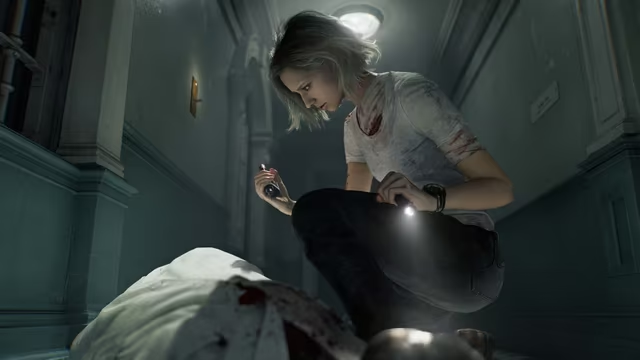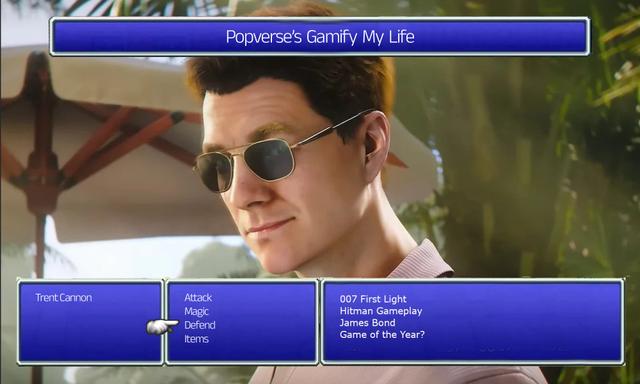If you click on a link and make a purchase we may receive a small commission. Read our editorial policy.
Netflix's Avatar: The Last Airbender shows that cast and creator promotion can hurt
When it comes to creating buzz, sometimes less is more

Popverse's top stories
- The Mighty Nein forced Critical Role's Taliesin Jaffe to play Mollymauk Tealeaf differently than in Campaign 2
- Jurassic Park stars Wayne Knight, Joseph Mazzello, Ariana Richards, and BD Wong are headed to C2E2 2026!
- DC KO #4 explains how the Absolute Universe fits into the larger DC canon
When the first trailer for Netflix's live action Avatar: The Last Airbender dropped, the internet was very excited. It seemed like it would be, as fans wanted, an accurate adaptation of the original Nickelodeon cartoon, keeping close to the source material. The excitement was particularly powered by a long wait for the adaptation and a particularly terrible M. Night Shyamalan movie attempt in 2010. Buzz was high for the show, and Last Airbender fans were hopeful that they would finally be able to see their favorite cartoon brought to life the right way.
What went wrong

But then, the actors and creators involved started talking about the show itself, and everything changed, fast. The first rumblings that something was wrong came up after an interview with Entertainment Weekly, when Kiawentiio (who plays Katara) and Ian Ousley (who plays Sokka) shared that Sokka's sexism was to be mostly cut from the new show, with Kiawentiio saying, “I feel like we also took out the element of how sexist [Sokka] was. I feel like there were a lot of moments in the original show that were iffy.”
This sparked a big social media debate, as Sokka's sexism early on in the series is considered central to his full character arc. Not only did the change seem like unnecesary sanitation (why would the creators of the show feel like audiences couldn't handle a sexist character?), but it also removed a central aspect of one of the series' main characters. If that aspect of his character were taken away, what would that mean for his growth in the live action adaptation?
Soon after this mention of the Sokka change came a long interview with showrunner Albert Kim in IGN which further showed that the production's priorities may not have lined up exactly with what fans had wanted. According to Kim, the Netflix show would not be going after the cartoon's original tone, instead going after a more mature (read graphic) vibe, saying "we had to make it a serialized Netflix drama, which meant it couldn't just be for kids. It had to also appeal to the people who are big fans of Game of Thrones. And so, it had to feel grounded and mature and adult in that way too." You can imagine that the Game of Thrones comparison did not go down well within the fandom.
And in case fans weren't sure exactly what that statement meant, Kim clarified later in the same interview that the show would be including one of the most haunting backstory aspects of the cartoon - the genocide of the Air Nomads. Kim shared that the live action adaptation would actually "show it as opposed to just talk about it in the original series." This sparked a debate on why this genocide needed to be shown, and what would be more haunting within the story, knowing about it or seeing it?
Not only did these three quotes dominate the pop culture conversation that week, it seemed to kill a lot of the buzz that the Netflix adaptation had going for it. The conclusion seemed to be that after the aformentioned long wait to adaptation, it looked like the creators of Avatar: The Last Airbender weren't going to give fans what they want.
Should adaptations be "faithful"?

Now I am not at all a proponent of the idea that every adaptation needs to be faithful to its source material - except... for the fact that Netflix has always seemed to want to promote this adaptation to be faithful to its source material, even bringing on original cartoon co-creators Bryan Konietzko and Michael Dante DiMartino to develop the series. Both Konietzko and DiMartino quit the project in 2020 though, with DiMartino writing in a blog post to fans that "In a joint announcement for the series, Netflix said that it was committed to honoring our vision for this retelling and to supporting us on creating the series" and "whatever version ends up on-screen, it will not be what Bryan and I had envisioned or intended to make."
Of course, that was probably the first sign of what was to come with the series, and not the quotes coming from the production in the past couple months. However, the marketing and the trailer seemed, like Netflix, to all point to the type of adaptation the fans were hungry for, not the more violent, and yet still santized, version that's come to light in recent interviews.
Avatar: The Last Airbender drops on Netflix today, but, being on social media this week, you couldn't really tell that it was coming at all. The good thing, for Netflix at least, is that Netflix has a great tool for making (even temporary) hits - full control (and clever use) of their front page. So who knows? Maybe Avatar: The Last Airbender will be a huge hit with it's new audience, or maybe fans will love what the creators have done with it. Still, it does very much feel like the press interviews done by the cast and creators of the Netflix show killed a lot of the excitement that the already built-in audience had for today's big release.
Netflix has renewed Avatar: The Last Airbender for season 2! While you wait, check out our watch order for newcomers, an exclusive Avatar reunion panel from ECCC 2024, and a couple recommendations on what to watch after the series. Heck, we've even interviewed some of the best Avatar cosplayers from across the four nations - why not check it out?
Follow Popverse for upcoming event coverage and news
Find out how we conduct our review by reading our review policy
Let Popverse be your tour guide through the wilderness of pop culture
Sign in and let us help you find your new favorite thing.
















Comments
Want to join the discussion? Please activate your account first.
Visit Reedpop ID if you need to resend the confirmation email.